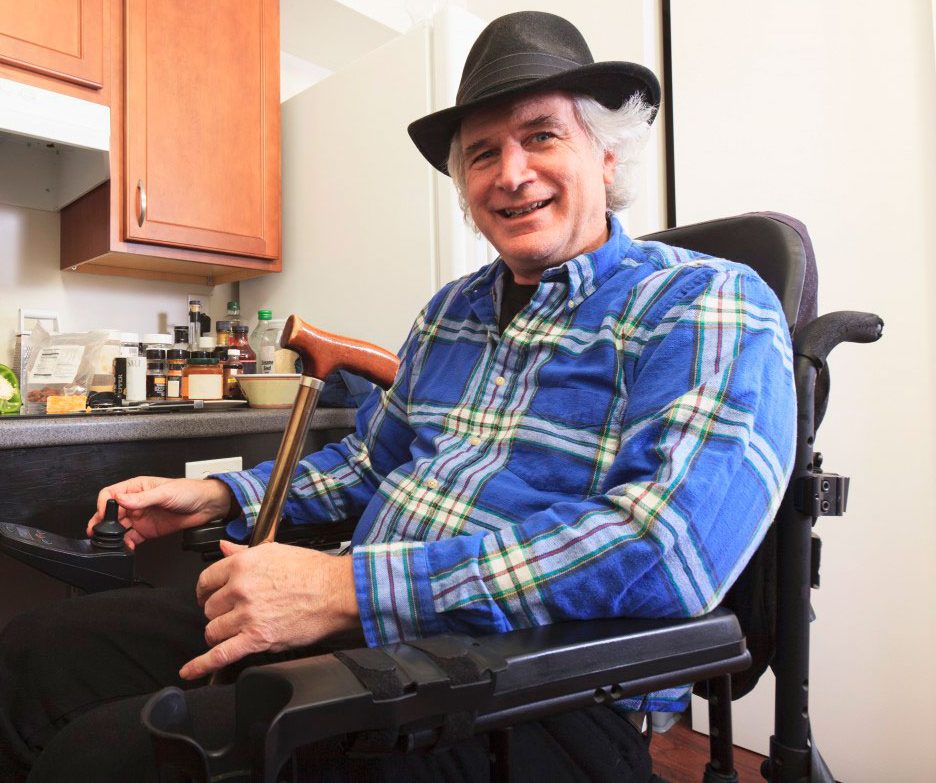How to Prevent Multiple Sclerosis Symptoms

Drugs are just one part of the puzzle of multiple sclerosis. You can minimize multiple sclerosis symptoms if you tackle risk factors, such as a poor diet.
Ingrid Adelsberger, a health coach first diagnosed with multiple sclerosis (MS) in 2011, is committed to helping other people with the condition thrive.
YOU MIGHT ALSO LIKE: Multiple Sclerosis Symptoms in Spring and Winter
How to prevent multiple sclerosis symptoms
Adelsberger chose an elimination diet to detox — no meat, wheat, dairy, eggs, and sugar — hoping it would help, she said. At the time, she wasn’t aware of a program developed by George Jelinek, MD, who also suffers from MS and was determined not to decline as his mother had.
Jelinek advises MS patients to eat plants (including fruit, vegetables, beans, and nuts) and seafood, while eliminating meat and dairy. Independent science has backed up the idea that diets along those lines can powerfully affect MS.
A healthy diet can:
- Improve your energy levels to fight fatigue
- Reduce the amount of calories your body has to burn
- Help prevent other conditions such as heart disease, obesity, and high blood pressure (all of which can make MS worse)
When Jelinek first learned of his diagnosis, his background as a professor in emergency medicine and editor-in-chief of a major medical journal gave him the tools to evaluate the available medical research. There were plenty of clues, he realized, linking diet and other lifestyle factors to the disease progression.
Jelinek, now head of the neuroepidemiology unit at The University of Melbourne, has founded the non-profit Overcoming MS. The organization is testing the results of an online lifestyle coaching program.
What is multiple sclerosis
MS is an autoimmune disease affecting the central nervous system, causing the degeneration over time of a cell membrane called myelin. It can interfere with any part of your brain and spinal cord.
Two people can have very different symptoms. But healthy changes can help many MS sufferers manage symptoms and slow the disease’s progression:
- Quitting smoking
- Managing stress
- Getting enough sun and vitamin D
- Regular exercise
- A healthy diet (avoiding processed meats, refined carbs, junk foods, trans fats, and sugar-sweetened drinks)
Treatment for multiple sclerosis
There is no cure for MS. Most patients take one or more drugs:
- Interferon beta (Avonex)
- Glatiramer acetate (Capoxone)
- Teriflunomide (Aubagio)
- Fingolimod (Gilenya)
- Siponimod (Mayzent)
- Dimethyl fumarate (Tecfidera),
- Alemtuzumab (Lemtrada)
- Ocrelizumab (Ocrevus)
- Natalizumab (Tysabri)
But medications aren’t the entire answer. After a small five-day residential retreat teaching the principles of Overcoming MS, participants improved their overall quality of life by almost 20 percent five years later. Subsequent research confirmed that result.
Exercise, for example, might seem tough for people with movement issues. But you are better off doing what you can. If muscle weakness and fatigue make you less active, your muscles may waste away in part from disuse, rather than the disease.
Exercise may also reduce pain. The National Multiple Sclerosis Society in New York suggests that patients see an MS specialist who can establish individualized exercise plans with the goal of at least 150 minutes a week of exercise. A trained assistant can help people with limited mobility.
Up to 60 percent of MS patients may experience cognitive problems — with attention, thinking speed, and memory. Obesity and smoking are linked to thinking problems, but physical activity, dietary quality, and using vitamin D or omega‐3 supplements seem to make them less likely, Jelinek and others found.
Can alternative treatments help MS?
From 65 to 80 percent of MS patients seek other remedies, such as yoga or meditation, in part because medications tend to have side effects. But clinical guidelines often don’t provide any advice for doctors to pass along to patients.
An addition to drug therapy
The Overcoming MS program is not anti-drug but rather an addition to treatment with medications that Jelinek acknowledges are now more effective and with fewer side effects than the previous generation of MS drugs.
Adelsberger is a believer in lifestyle changes:
- The physical changes that Jelinek urges you to make
- The way his program increases your awareness of the disease
- How you view your disease in the context of your overall lifestyle
“I focus on and care about different things in my life more now than I used to,” Adelsberger says. “My symptoms will tell me when my life gets too hectic and force me to slow down, so it’s almost like having a special barometer. This has quite influenced the way I live. I will choose activities and hobbies wisely and focus on what matters.”
If you’re looking for tailored recipes, group or one-on-one counselling, or a guided one-month cleanse, you might check out her website.
Updated:
January 23, 2024
Reviewed By:
Christopher Nystuen, MD, MBA and Janet O'Dell, RN